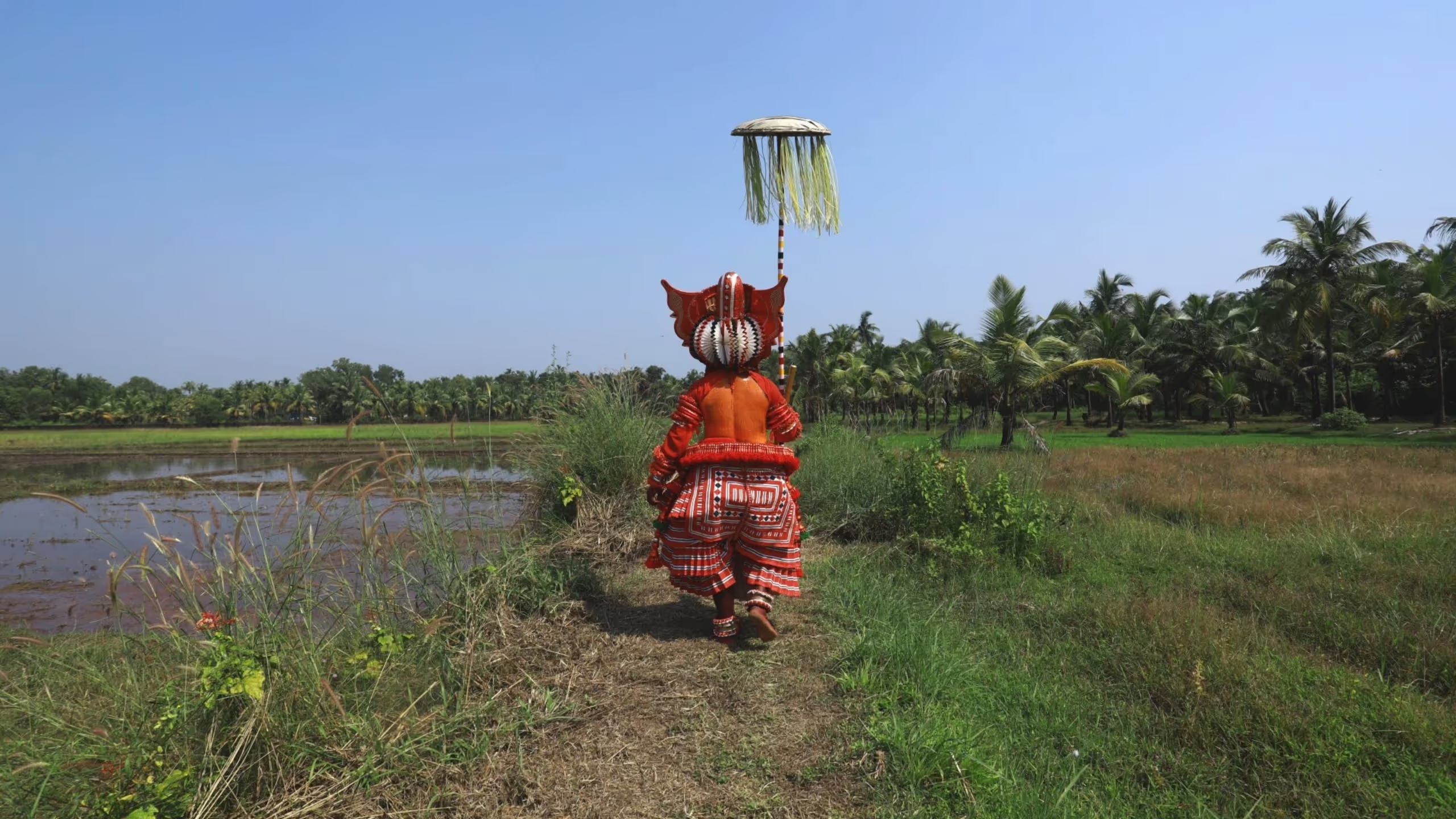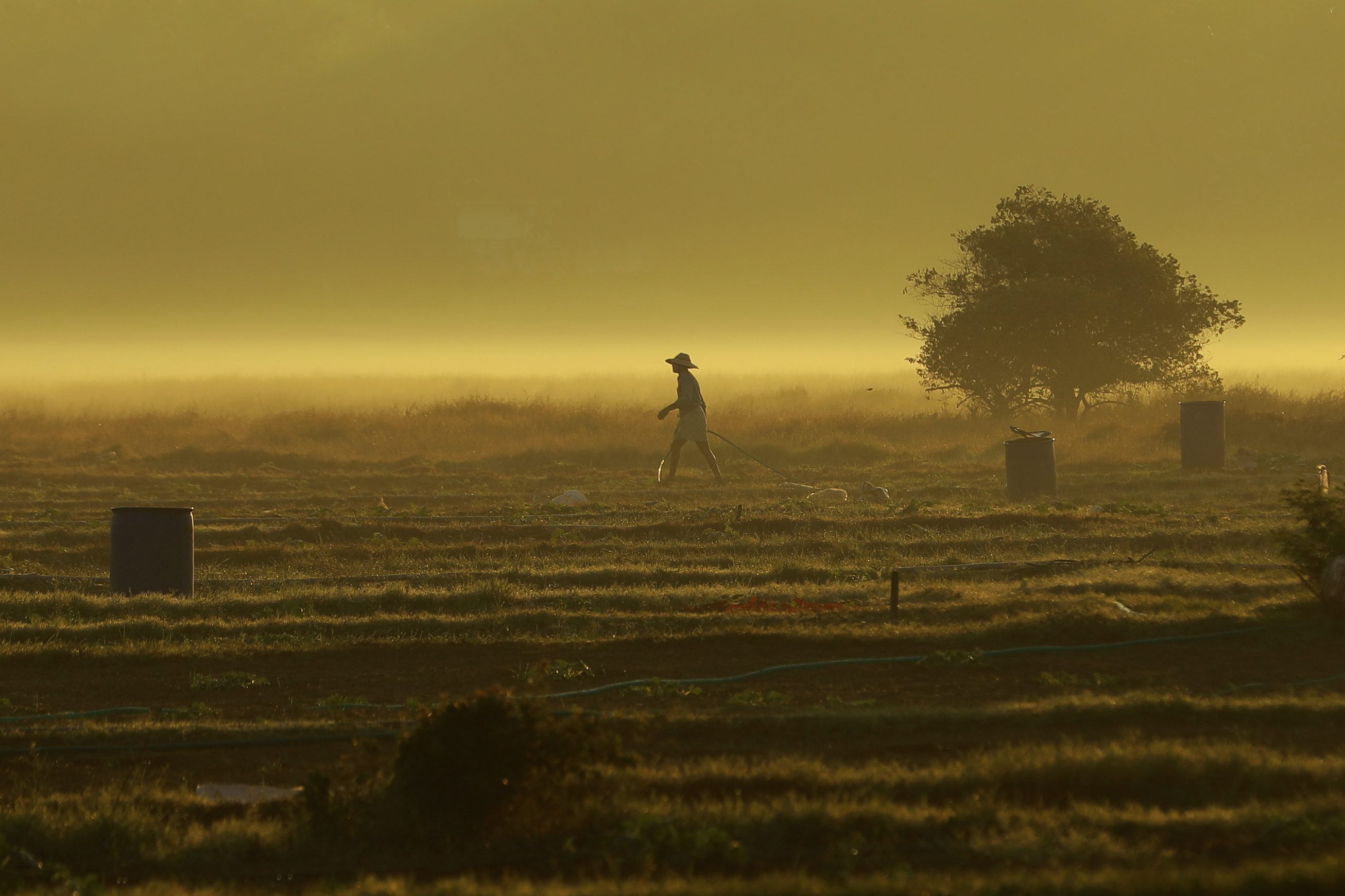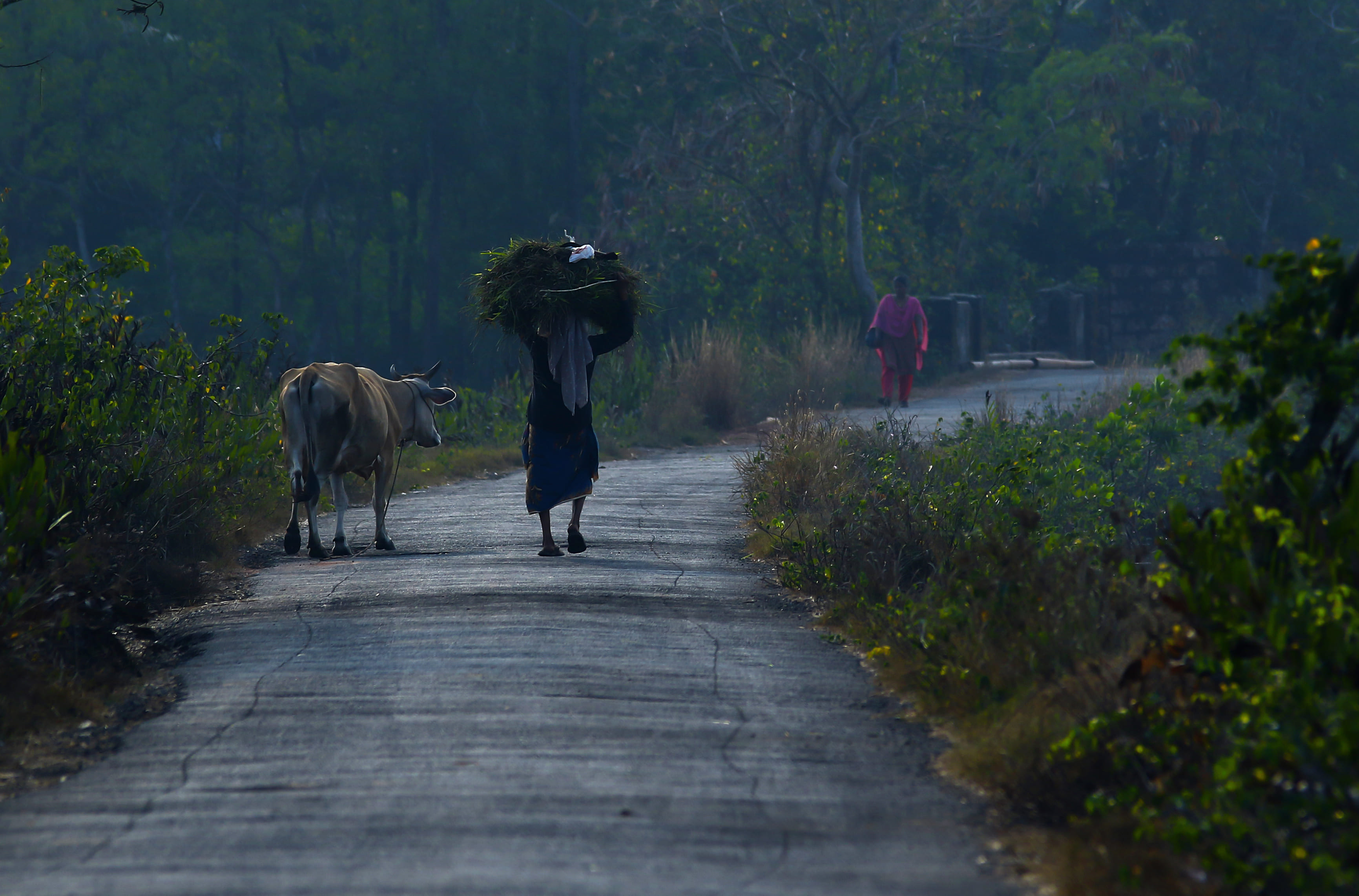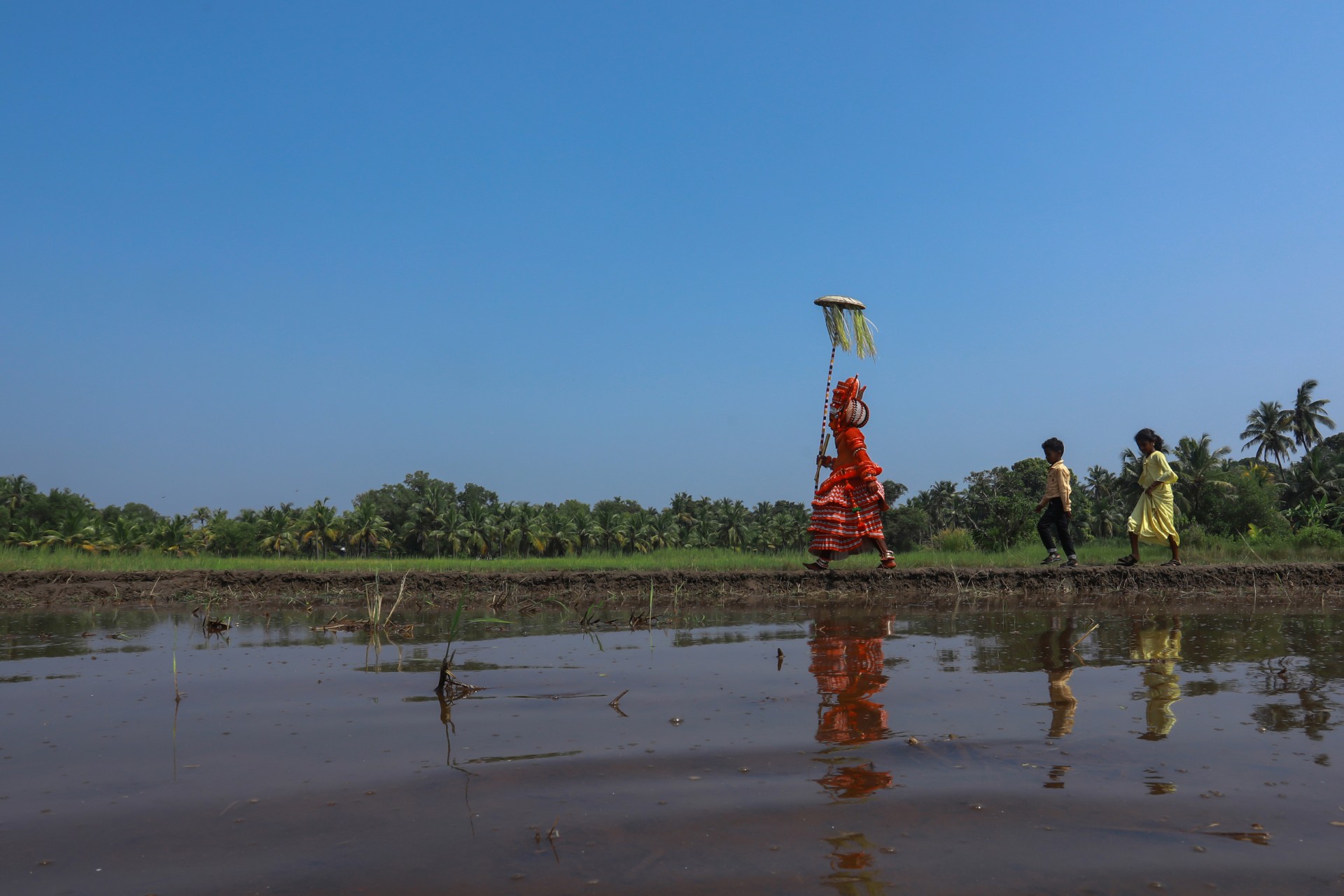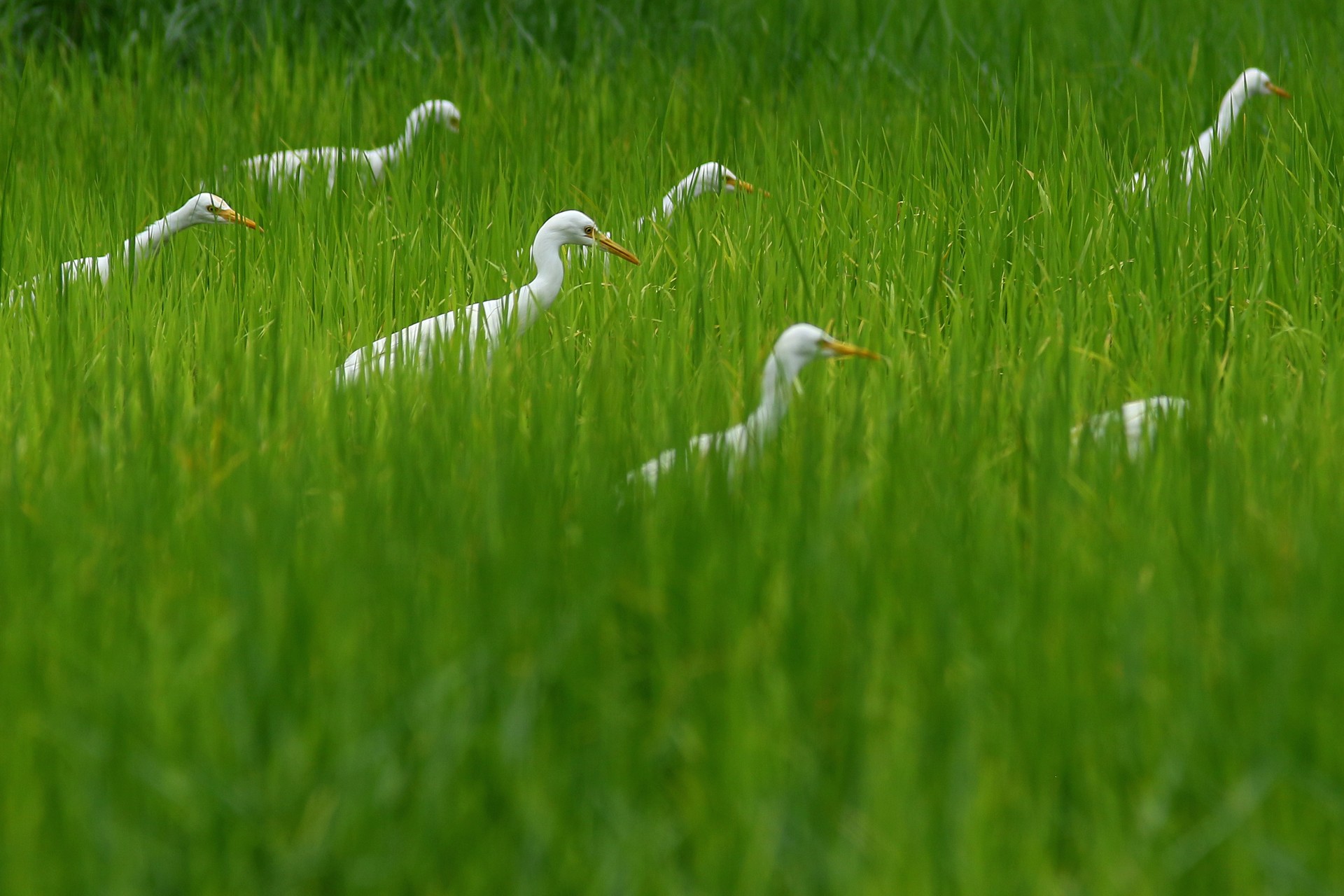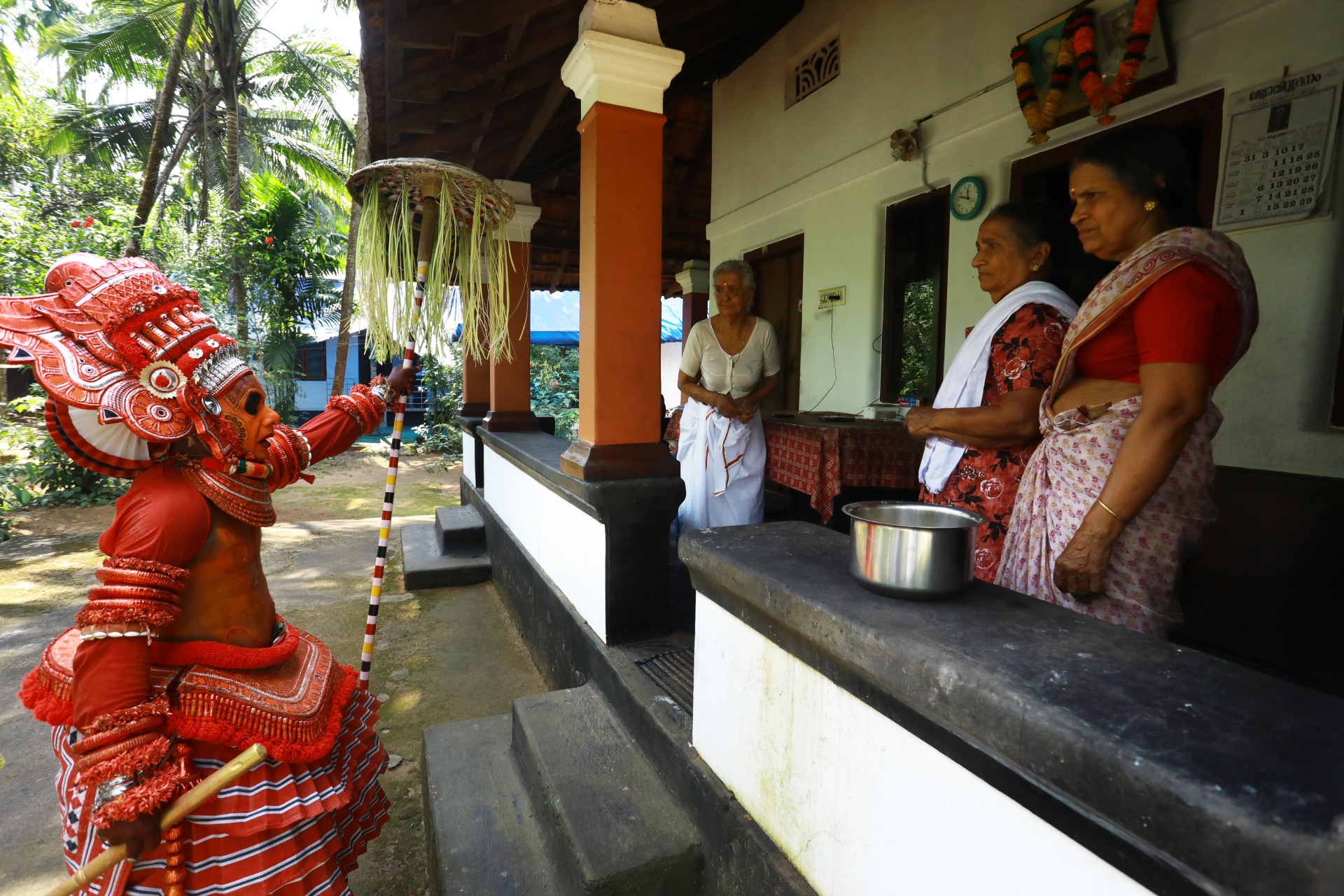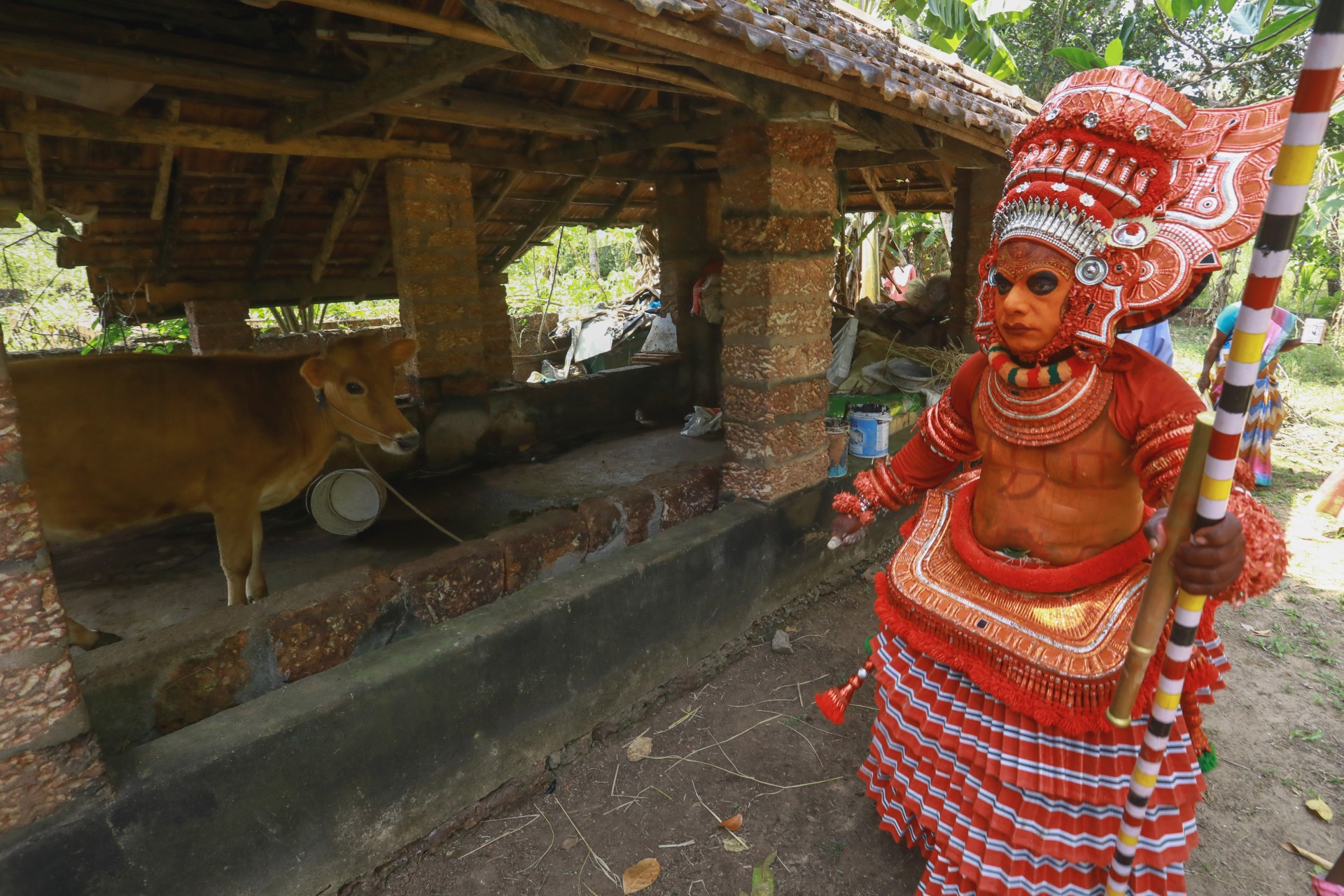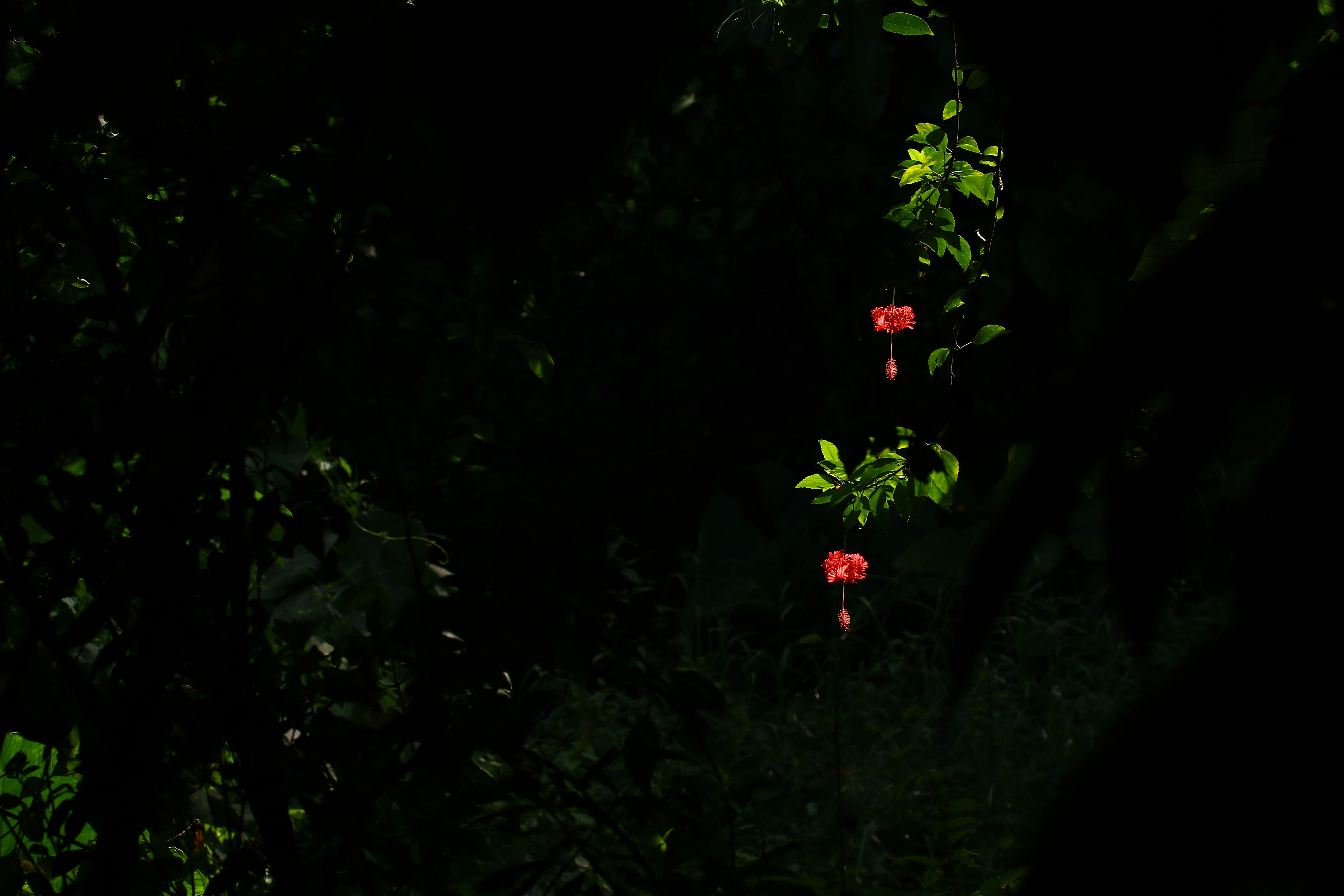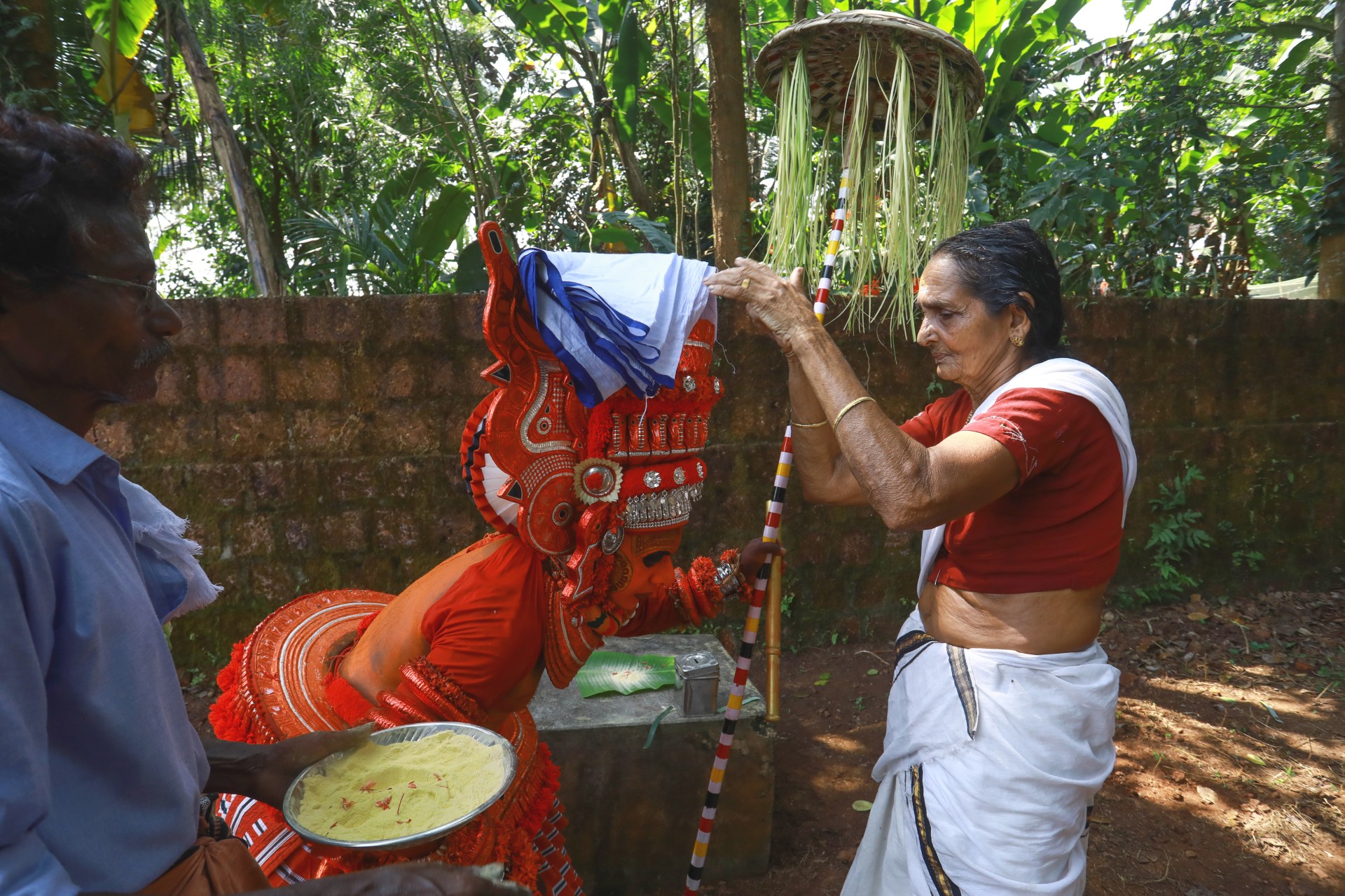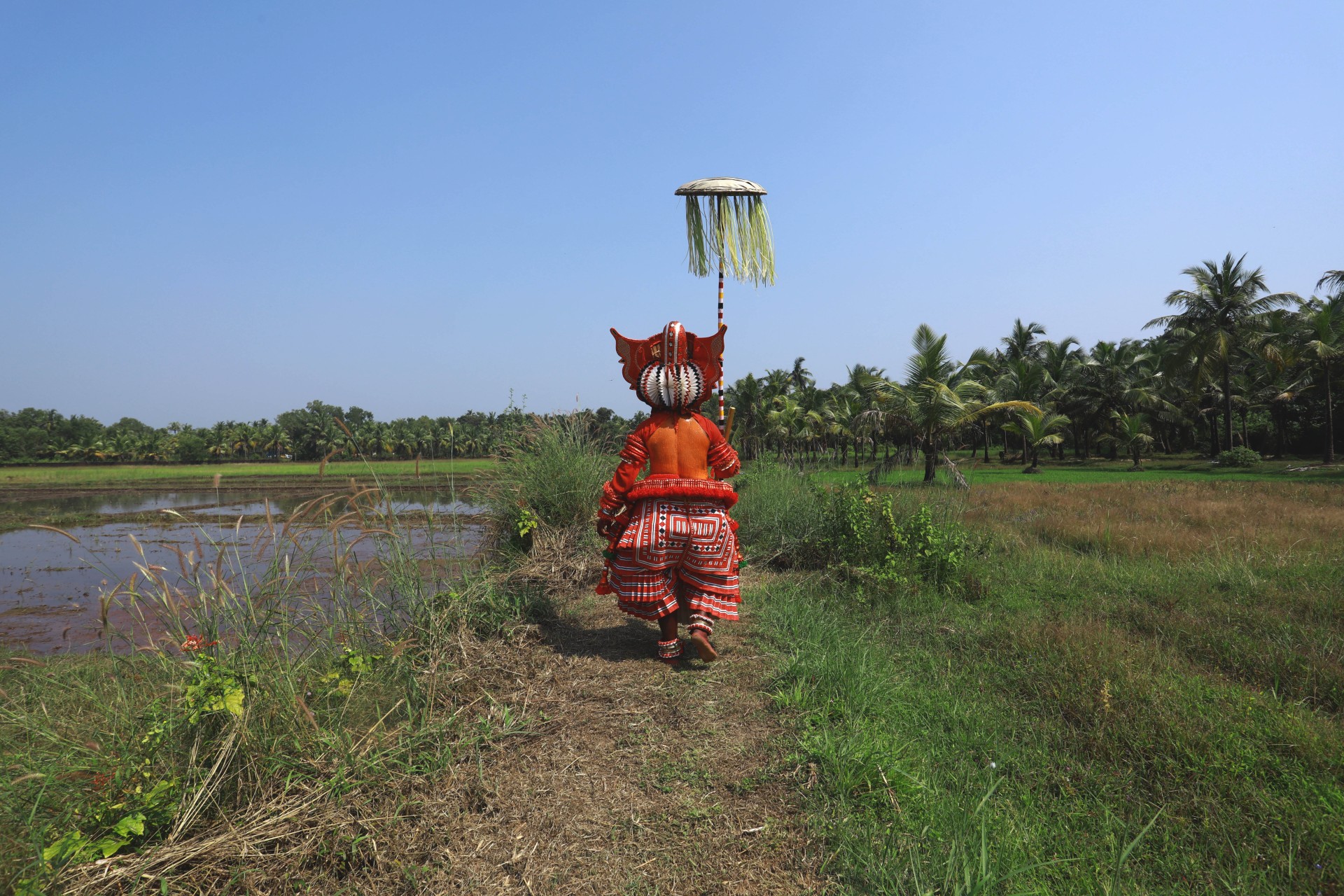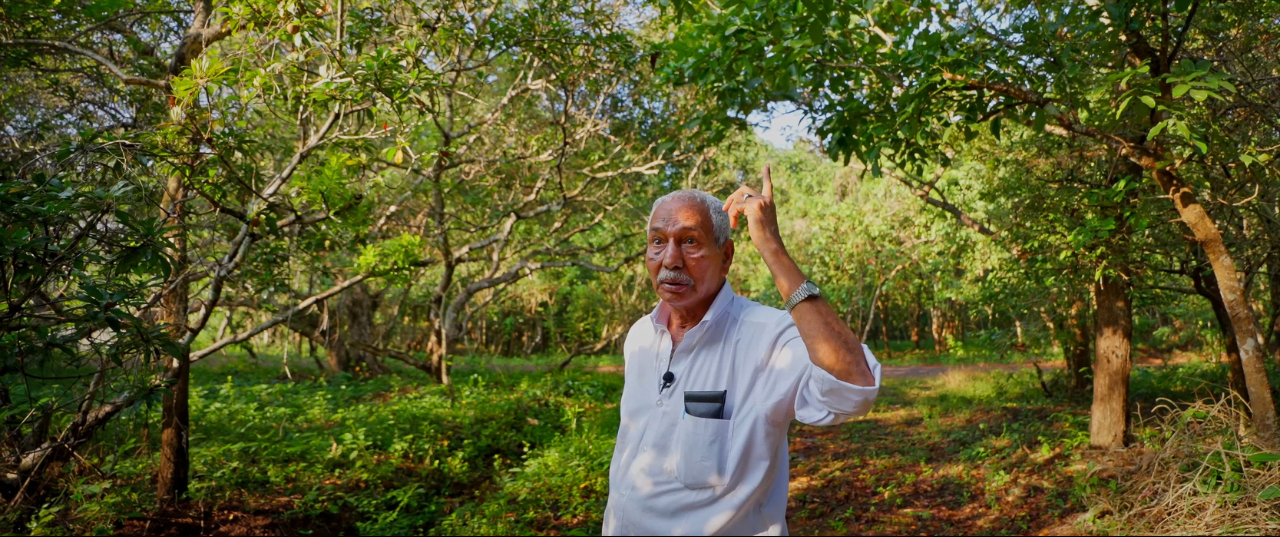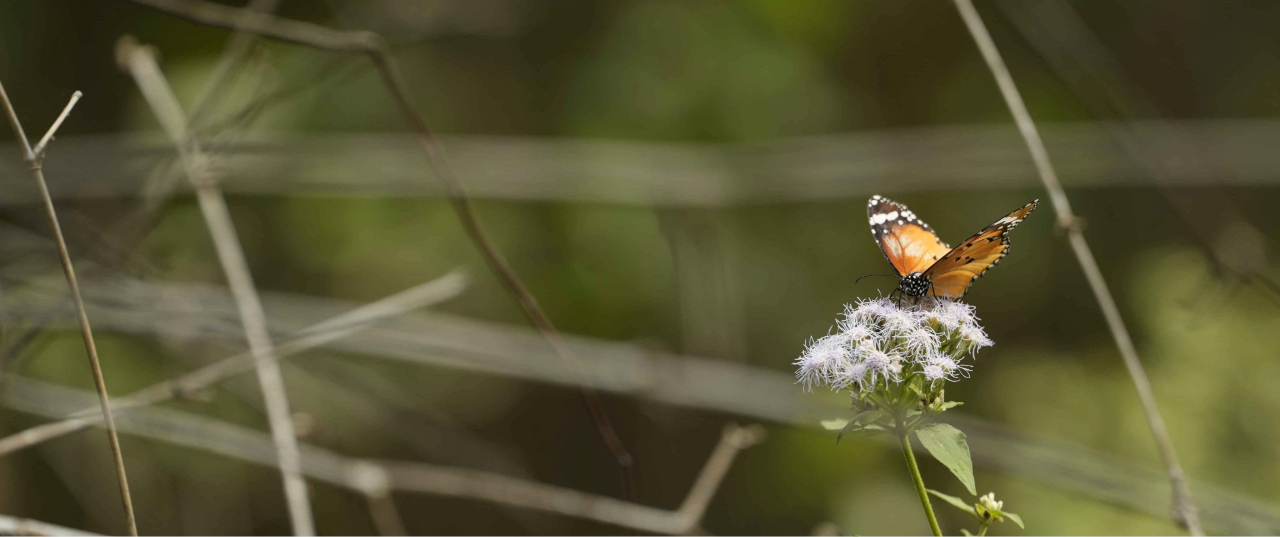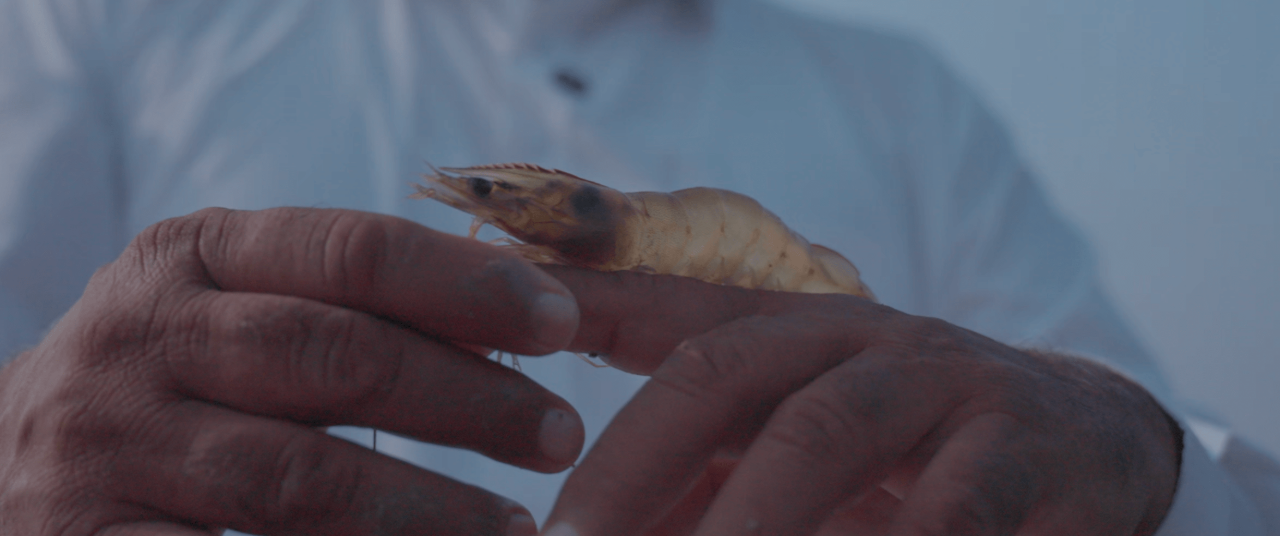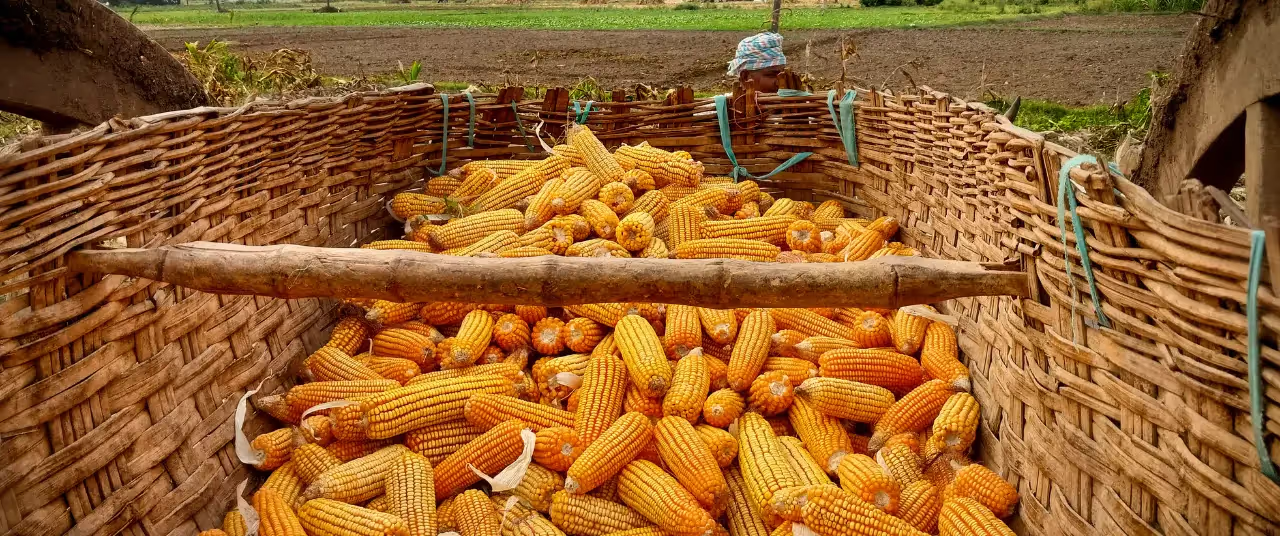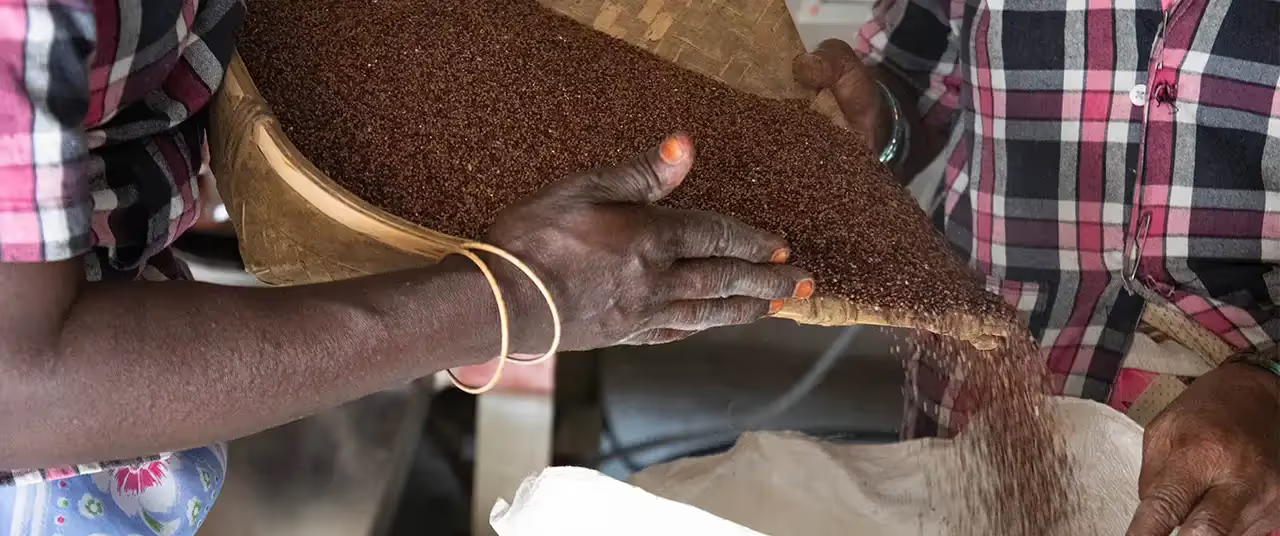Long before organised, commercial agricultural practices took root in India, the lives of marginal farmers were shaped by rituals, myths, and belief systems centered on their relationship with the land. Across the history of north Kerala and south Karnataka, agriculture and ‘Theyyam’ have shared an inextricable link.
Theyyams are devotional rituals that involve oracles. Belief states that they begin with a deity taking over the physical form of the Theyyakkaran (the individual who is bestowed with the right to perform the Theyyam). The Kalichan Theyyam—one among the thousand-plus Theyyam traditions that have emerged from districts like Kasargod and Kannur, as well as the Tulu Nadu region—stands out for its agrarian significance. It is performed by the Pulaya community, who visit villages to bless cattle and receive offerings of white cloth and paddy.
It is held annually during Thulam, a Malayalam month (which typically falls in the middle of October) that marks the start of the farming season, and performed mainly in the Kannur and Kasaragod districts. Kalichan was revered as the deity of kali (cattle) by the pastoral Kaliyan community, who were traditional herders in the region.
It is believed that sacred sites emerged where two Kajiram trees (Strychnos nux-vomica, or Poison Nut) stood together in fields or on hilltops. These sites became spaces of worship, and eventually, evolved into kavus or sacred groves. On the hilltops, the Kajiram trees remained green year-round, offering shelter to cattle and their herders. Over time, this quiet dependence gave rise to the worship of Kalichan as a deity of livestock and agricultural prosperity.
Sun worship was a key ritual among the upper castes in the Thulam month, marked by the lighting of a ten-wick lamp to begin the ‘Kalichan Oot’ ceremony: Families would clean the stables, feed the cattle, and boil rice in cow’s milk without sugar, on a stove built on the eastern side of the house. A sacred space would be carved out near the cowshed using Kajiram leaves and flowers.
The Kalichan Theyyam is a reminder of a time when cultivators sought out the sacred not in distant temples, but rather the very land they tilled and the cowsheds they tended to.
